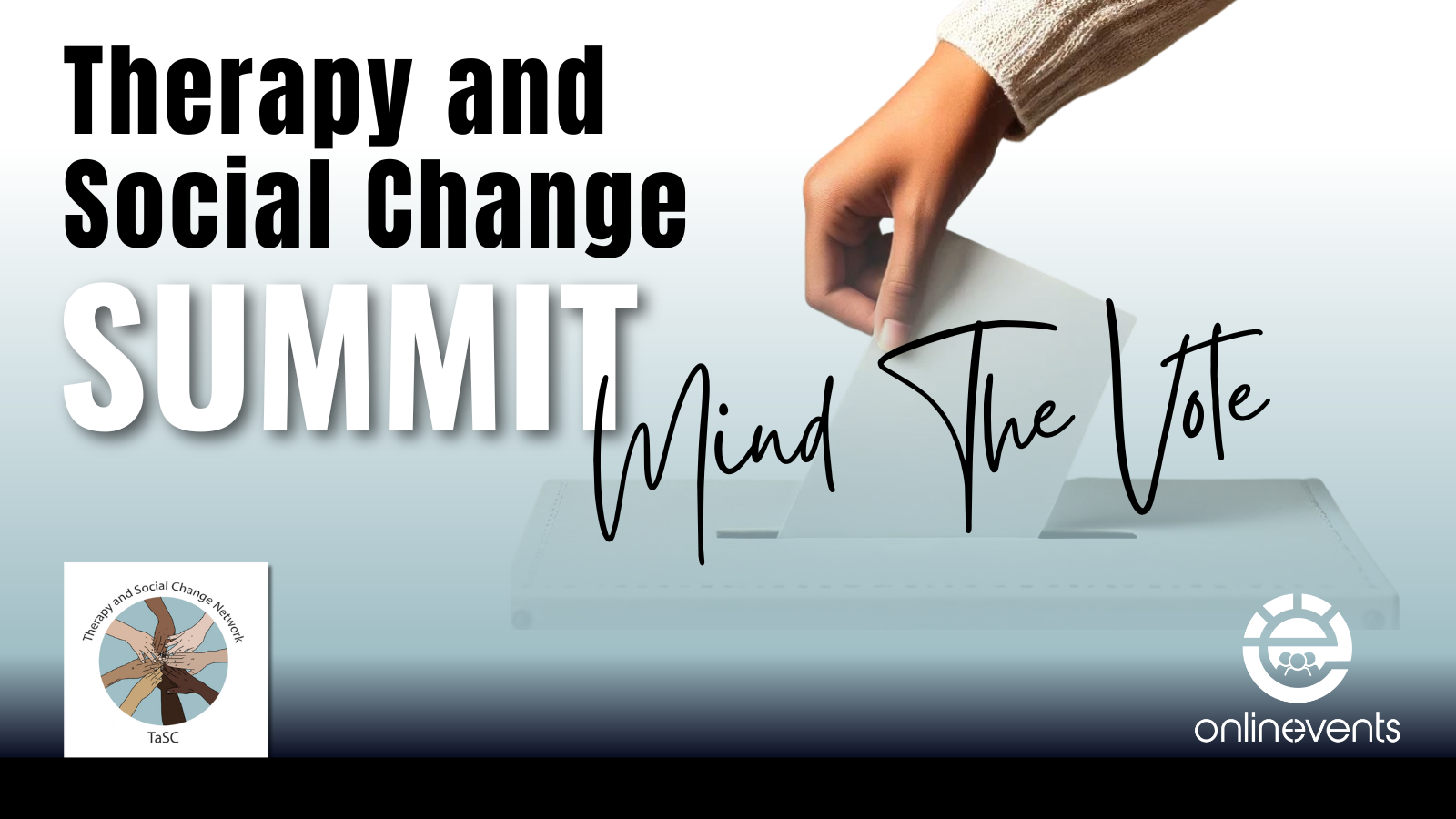The July snap election in Britain is a unique opportunity to steer the political landscape for the future. But how can we ensure that our next government preserves and promotes the emotional and interpersonal wellbeing of UK citizens – forging a society that is thriving, diverse, and socially just? At this critical time, our ‘snap conference’ will explore the interface of therapy and politics, bringing together psychotherapists, counsellors, service users, politicians, and policy-makers to look at the potential synergies between mental wellbeing and political action.
Our hopes for the conference are twofold. First, for members of the therapeutic community to critically explore the ways politics can be a route by which their therapeutic values and practices can be disseminated. Second, to help politicians, policy-makers, and other lay people to critically consider therapeutic values and practices as a means by which socially just political aims can be enhanced.
What we want this conference to do:
- Bring together (a) members of the therapeutic community, and (b) politicians, policy-makers, and others interested in political change, to facilitate dialogue and learning between these perspectives
- For members of the therapeutic community to leave the event motivated and wanting to actively engage in political strategies that can facilitate social change
- For members of the therapeutic community to have new ideas and practices that they can integrate into their therapeutic work that support social justice goals (e.g., broaching, advocacy)
- For politicians, policy-makers, and other lay people who attend the event to understand the potential value of therapeutic insights and practices, and to want to integrate these insights into their political work
- To generate enthusiasm for TaSC (Therapy and Social Change Network) and its mission: enhancing membership of, and engagement in, the network and its various fora (e.g., Facebook page, email group)
Course Content
Organisation
This learning is avaibale in the FREE Student Hub
Presenter
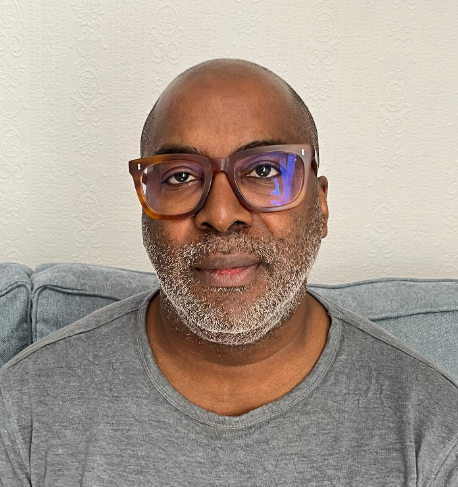
Stephen Maynard is the founder of Stephen Maynard & Associates, a trained counsellor, consultant and educator, working in the public sector and with NGOs.
He has worked with a number of central government departments including The Department of Health, The Home Office, The Department of Children, Schools and Families and The Department of Local Government and Communities. Also a member of National and Regional (West Midlands) Forums for Mental Health and Spirituality, Advisor to the Department of Health IAPT Programme (Increasing Access to Psychological Therapies) BME Communities, and author of their Muslim Mental Health Scoping Report, He co-founded the Islamic counseling courses.
He is the founder member of The Lateef Project, unique in offering Islamic counselling as part of mainstream services for the NHS in Birmingham.

BACP Senior Accredited Cognitive Behavioural Psychotherapist with research interests in conditions of neuro-diversity. Alex will be presenting 60-minute Practice in Research Workshop titled: “Anger Management: when ADHD or Autism underpins domestic conflict and violence.”
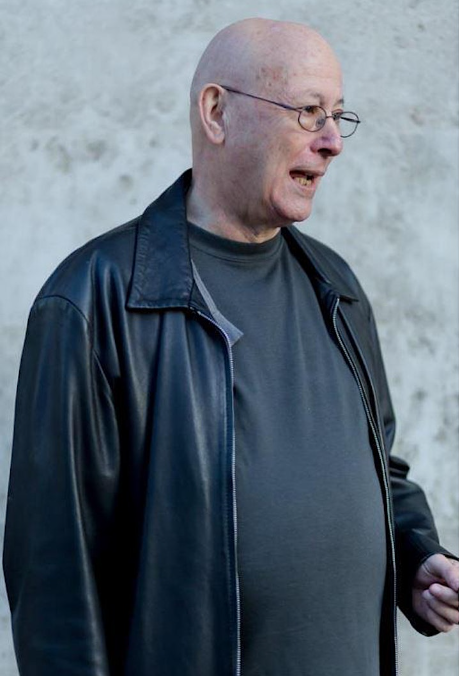
Andrew Samuels describes himself as a relational Jungian analyst. He was the chair of the UK Council for Psychotherapy and co-founder of Psychotherapists and Counsellors for Social Responsibility in 1994. He has worked as a political consultant with leading politicians, parties and activist groups in several countries.
His books include The Plural Psyche (1989), The Political Psyche (1993), Politics on the Couch (2001), A New Therapy for Politics? (20160, and Persons, Passions, Psychotherapy, Politics (2018).
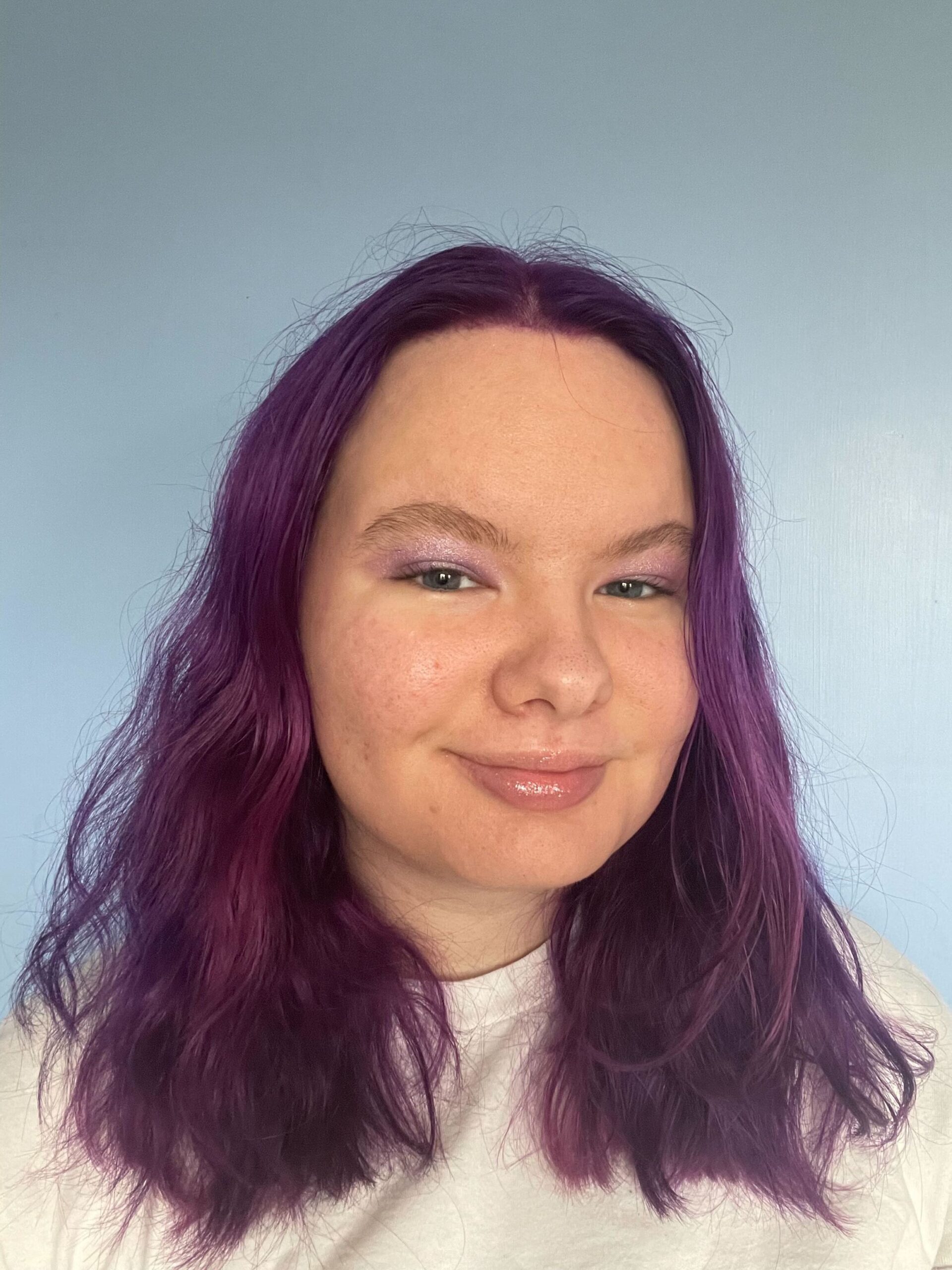
Charli Clement is an activist, writer, speaker and Lived Experience Expert, discussing disability, neurodiversity, queerness and how these topics combine. As a proud autistic, ADHD, dyspraxic & chronically ill person, they deliver training and talks to a variety of sectors and are a content creator on Instagram, TikTok and LinkedIn. Charli also has bylines in outlets including the Metro, Independent, Digital Spy, and the Unwritten. Alongside this, Charli works in the NHS & third sector organisations on improving psychiatric care and human rights for autistic people. Their first book, All Tangled Up in Autism & Chronic Illness, a guide to life as an autistic and chronically ill person, was published in December 2023.
Duncan has been a consultant clinical psychologist for over thirty years, working across adult, children and young people’s mental health settings. He has a strong interest in social justice, health equality and community psychology. He has worked in the NHS as well as charitable and third sector organisations and is currently a visiting professor at University College London.
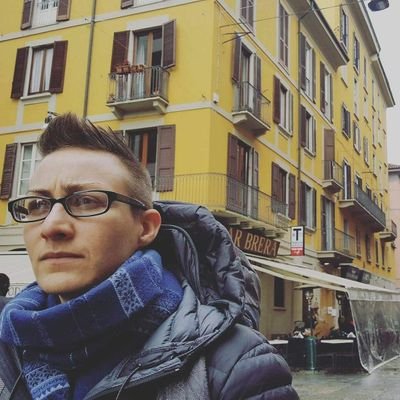
Dr Jen Daffin is a Community Clinical Psychologist who works for Platfform, a charity for mental health and social change. Jen has a passion for social justice and is keen to explore holistic and human rights informed ways of working.
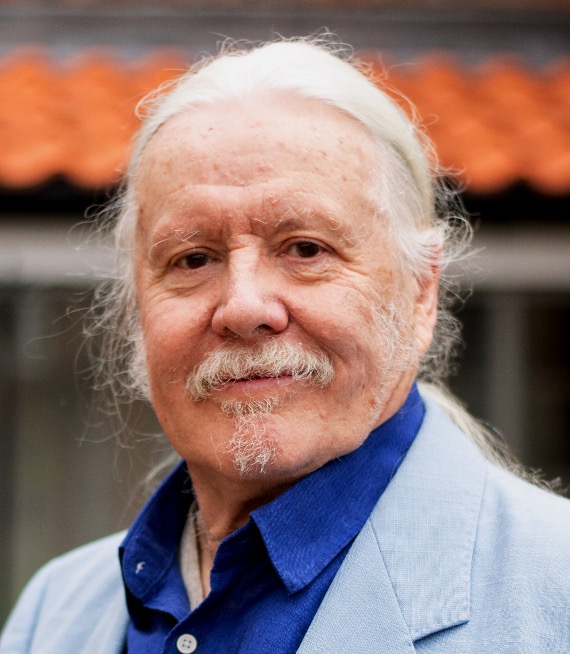
Dr. John Wilson PhD. John has specialised in bereavement and loss for 20 years, as a counsellor, supervisor and trainer. He is author of Supporting People through Loss and Grief: An Introduction for Counsellors and Other Caring Practitioners.
He completed his PhD in 2000 after six years of case study research with bereaved clients. John is a visiting research fellow at York St John University and Director of Bereavement Services at York St John University Counselling and Mental Health Clinic.
Since early March, John has taken a close interest in adapting the outcomes of his doctoral thesis to supporting clients bereaved of a loved one from Covid-19 and those bereaved from other causes during the lockdown.
With other counsellors he runs a closed support group on social media, for those bereaved during the Covid-19 pandemic.
Dr Matt Hayler is senior lecturer in English Literature and Digital Cultures at the University of Birmingham where he looks at the entanglements of people, environments, and technologies and specialises in the analysis of so-called “human enhancement” technologies, including AI. He is currently undertaking training in psychotherapy at the University of Warwick.
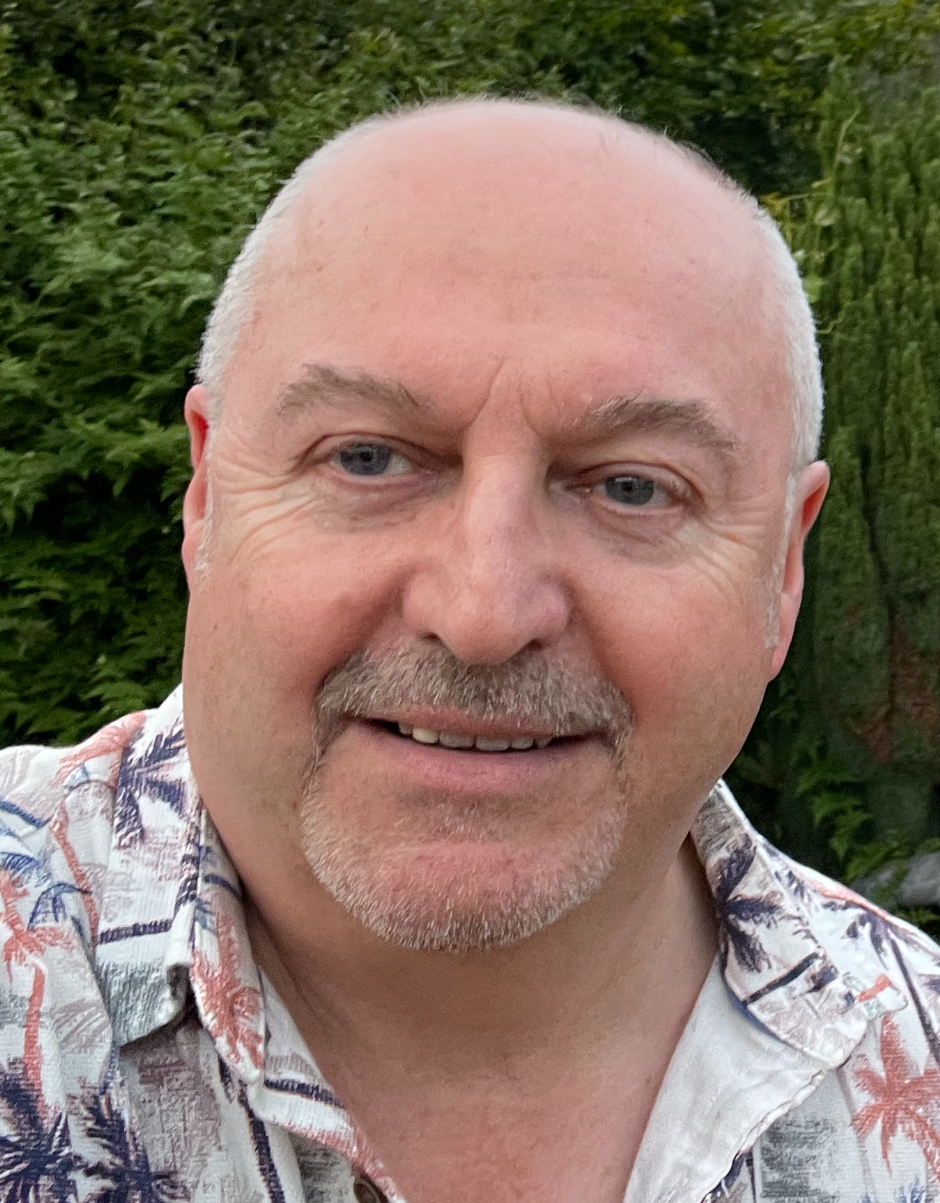
President-elect of the British Psychological Society due to take up Presidency in July 2024. Has been leading on the BPS campaign urging the government to restore investment in mental health support for NHS and Social care staff. Currently working on Psychology matters asking all political parties develop and deliver policies using a psychological approach. Previously Chair of the BPS Division of Clinical Psychology.Consultant Lead Clinical Psychologist and Head of Clinical Psychology in Central London Community (CLCH) NHS Trust. Clinical expertise working in services for adults with learning disabilities, autistic spectrum disorders and forensic services.
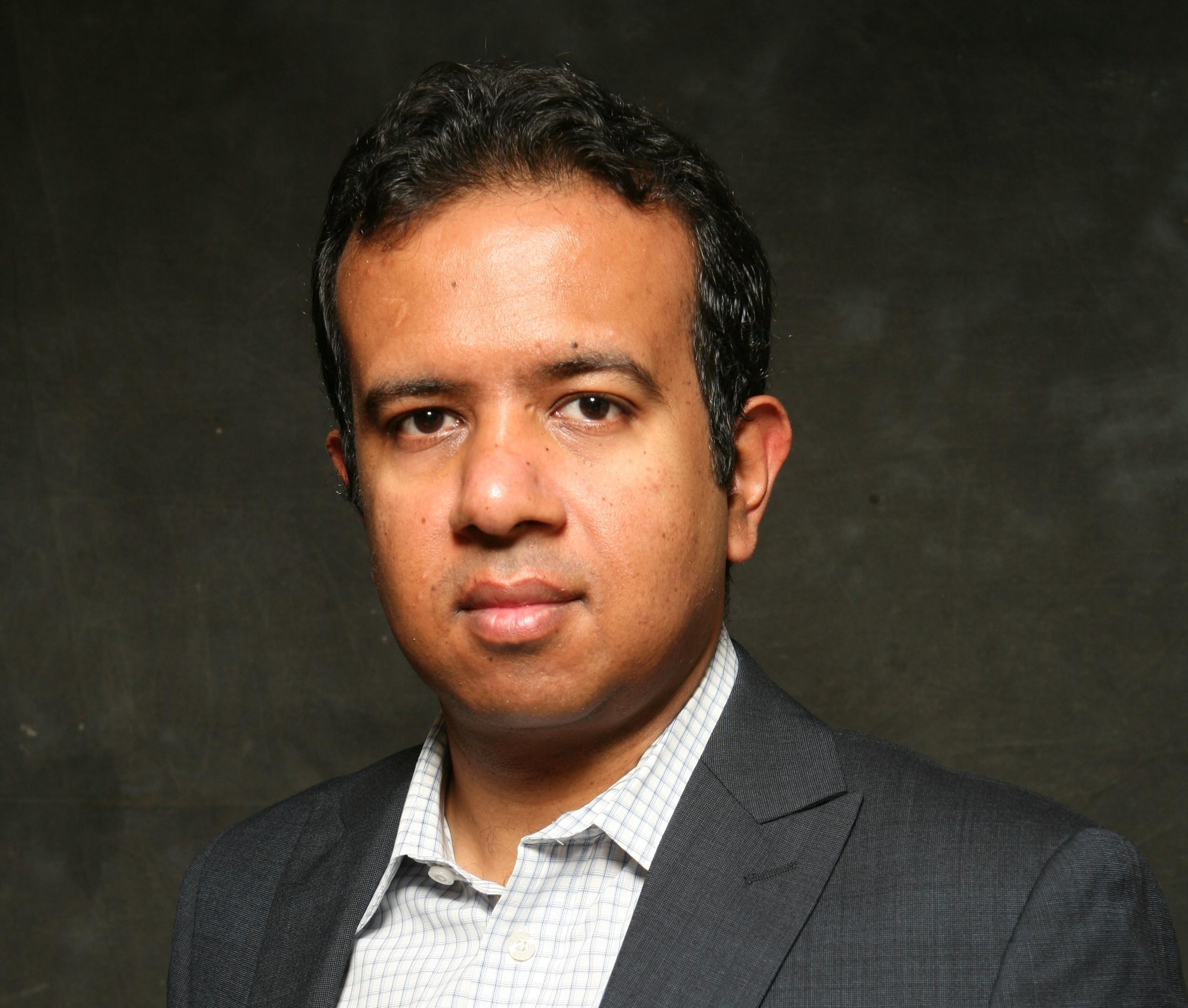
Russell Razzaque has been a Consultant Psychiatrist for nearly 20 years and also a part time academic for the last 10. He is an Associate Medical Director and Director of R&D at his NHS Trust as well as the Clinical Director for Community Mental Health Transformation. Russell is also an Open Dialogue trainer and a Mindfulness teacher and his areas of research interest are around person-centred care and therapeutic relationships and how they can be cultivated and embedded into mainstream care. He has also had an interest in extending this same philosophy to participatory models of democracy.
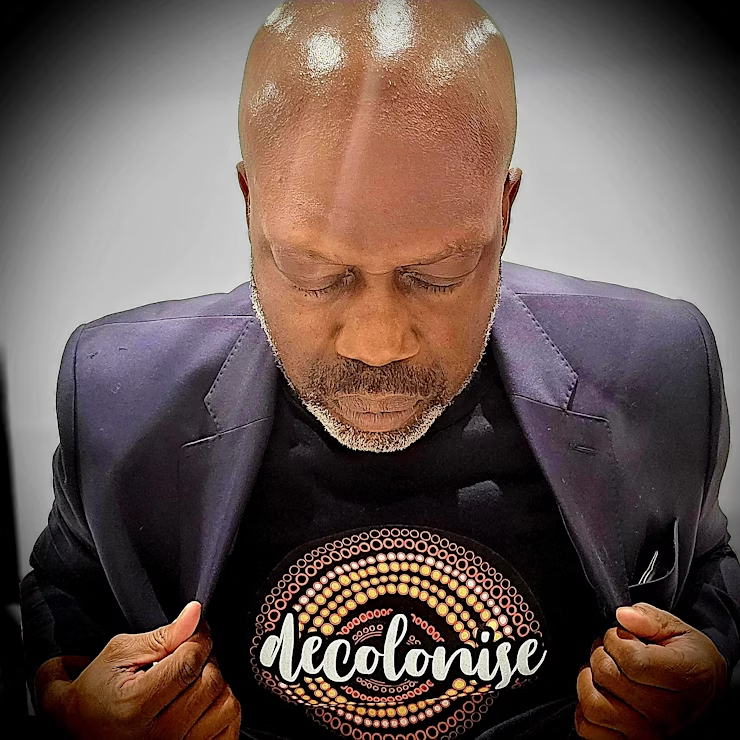
Dr Dwight Turner is Course Leader on the Humanistic Counselling and Psychotherapy Course at the University of Brighton, a PhD Supervisor at their Doctoral College, a psychotherapist and supervisor in private practice. His publications include The Psychology of Supremacy (2023), and Intersections of Privilege and Otherness in Counselling and Psychotherapy (2021), which are both published by Routledge, together with several chapters in anthologies on aspects of counselling and psychotherapy, and over 50 academic papers on everything from intersectionality in psychotherapy, to dreamwork, to Afrocentric spirituality. A leading driver in Intersectional Psychotherapy, Dr Turner is an experienced conference speaker, including numerous keynote presentations. Dr Turner has also run workshops for a wide variety of Universities, Charities, and private organisations on issues of race, difference and intersectionality in counselling and psychotherapy.
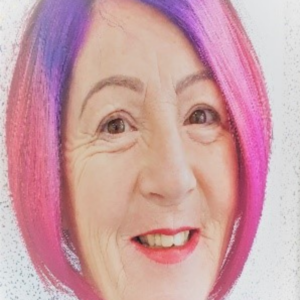
Psychotherapist/Supervisor for 25 years in private practice and NHS. Lecturer Coventry University PG Dip CBT [Professional Development] “fights for fairness against injustice to the best I can”
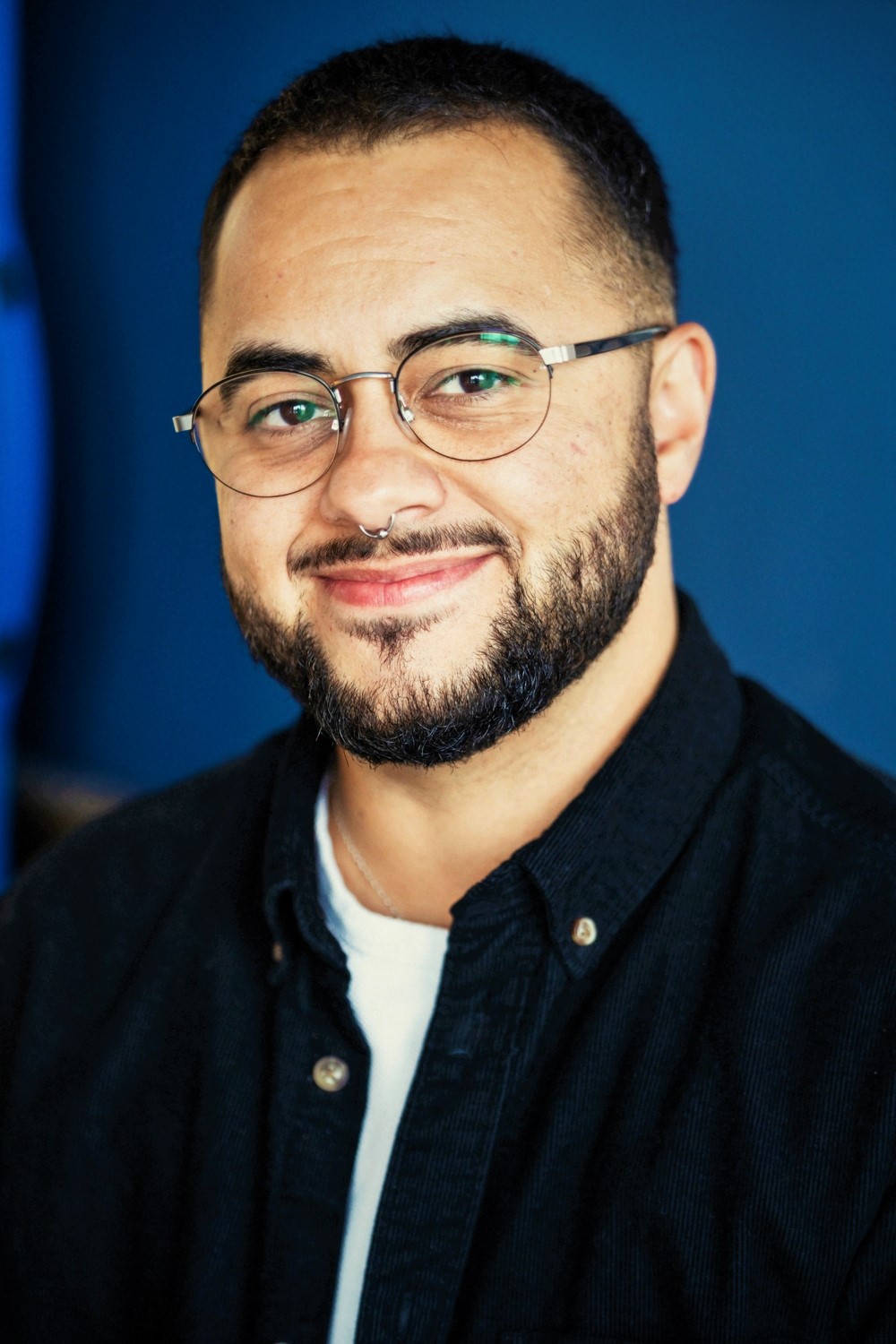
Psychodynamic Psychotherapeutic Counsellor working with trans, non-binary, queer and questioning people.
Harriet Clarke is a person-centred psychotherapist and a sociology and social policy academic (University of Birmingham) with longstanding (personal and professional) interests in disability and mental health. Her current teaching concerns include climate justice, researching disability, and the processes through which social policy responds to ‘social problems’. She is currently researching animal-assisted well-being (e.g., city farms, and equine-assisted therapy) and maintains a strong interest in health, social care, and social security policy.
Ian has lived experience of a variety of therapies for severe mental illness, including while detained in hospital. Now working for the national mental health charity Rethink Mental Illness as the Recovery and Secure Care Manager, Ian is passionate about the role of involvement and co-production as a therapeutic vehicle for social change.
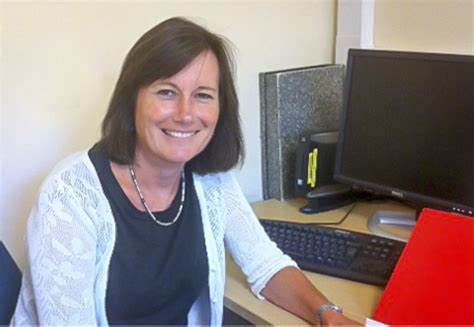
Dr Lucy Johnstone is a consultant clinical psychologist, author of ‘Users and abusers of psychiatry’ (3rd edition Routledge 2021) and ‘A straight-talking guide to psychiatric diagnosis’ (PCCS Books, 2nd edition 2022); co-editor of ‘Formulation in psychology and psychotherapy: making sense of people’s problems’ (Routledge, 2nd edition 2013); and co-author of ‘A straight talking introduction to the Power Threat Meaning Framework’, 2020, PCCS Books). She is the former Programme Director of the Bristol Clinical Psychology Doctorate in the UK and has worked in Adult Mental Health settings for many years. She is Visiting Professor at London South Bank University, and Honorary Fellow of the BPS, and a Fellow of the Royal Society of Arts. Lucy was lead author, along with Professor Mary Boyle, for the ‘Power Threat Meaning Framework’ (2018), a British Psychological Society publication co-produced with service users, which outlines a conceptual alternative to psychiatric diagnosis and has attracted national and international attention. Lucy is an experienced conference speaker and lecturer, and currently works as an independent trainer. She lives in Bristol, UK. (feel free to edit)
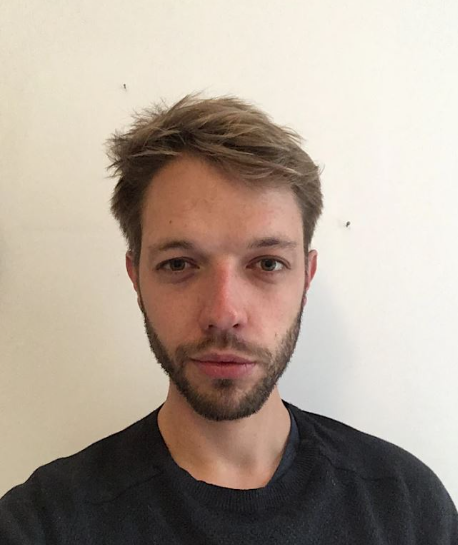
Director at Compassion in Politics
Matt Hawkins has led a number of social and environmental justice campaigns. He was part of the Nobel Peace Prize winning team at the International Campaign to Abolish Nuclear Weapons (ICAN) which successfully lobbied the UN to introduce a ban on nuclear weapons. Most recently, he managed the Equal Civil Partnerships Campaign which secured the introduction of civil partnerships for mixed-sex couples.
Recent graduate of a person-centred counselling qualification from UCEN Manchester. Volunteered with clients for two years, currently working as a family mediator with an international homelessness prevention charity.
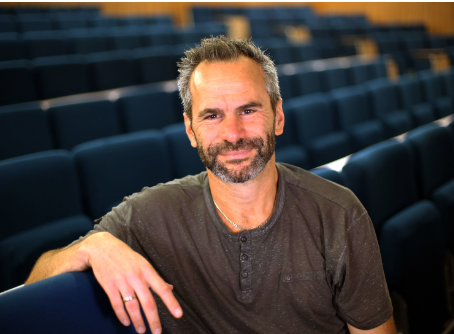
Mick Cooper is an internationally recognised author, trainer, and consultant in the field of humanistic, existential, and pluralistic therapies. He is a Chartered Psychologist, and Professor of Counselling Psychology at the University of Roehampton.
Mick has facilitated workshops and lectures around the world, including New Zealand, Lithuania, and Florida.
Mick’s books include Existential Therapies (Sage, 2017), Working at Relational Depth in Counselling and Psychotherapy (Sage, 2018), The Handbook of Person-Centred Psychotherapy and Counselling (Palgrave, 2013), and Integrating Counselling and Psychotherapy: Directionality, Synergy, and Social Change (Sage, 2019).
His latest work is Psychology at the Heart of Social Change: Developing a Progressive Vision of Society (Policy Press, 2023)
Mick Cooper is also the editor of The Tribes of the Person-Centred Nation (PCCS, 2024) and co-editor of The Handbook of Person-Centred Psychotherapy and Counselling (3rd ed, 2024).
Mick’s principal areas of research have been in shared decision-making/personalising therapy, and counselling for young people in schools.
In 2014, Mick received the Carmi Harari Mid-Career Award from Division 32 of the American Psychological Association. He is a Fellow of the British Association for Counselling and Psychotherapy and the Academy of Social Sciences.
His latest work is Psychology at the Heart of Social Change: Developing a Progressive Vision of Society (Policy Press, 2023)
The book looks at the interface between therapy and social justice. The blurb for the book reads: ‘Over the past century, psychotherapy – and its parent discipline, psychology – has built up a vibrant, nuanced and highly practical understanding of human wellbeing and distress. This book describes a progressive political approach that integrates insights from the psychotherapeutic and psychological domain, moving us from a politics of blame to a politics of understanding. In this vision of society – surrounded by a culture of radical acceptance – all individuals can live rich and fulfilling lives. We need those shaping our political landscape to understand psychological needs and processes more deeply to enhance our ability to work with others in a spirit of collaboration, dialogue and respect.’
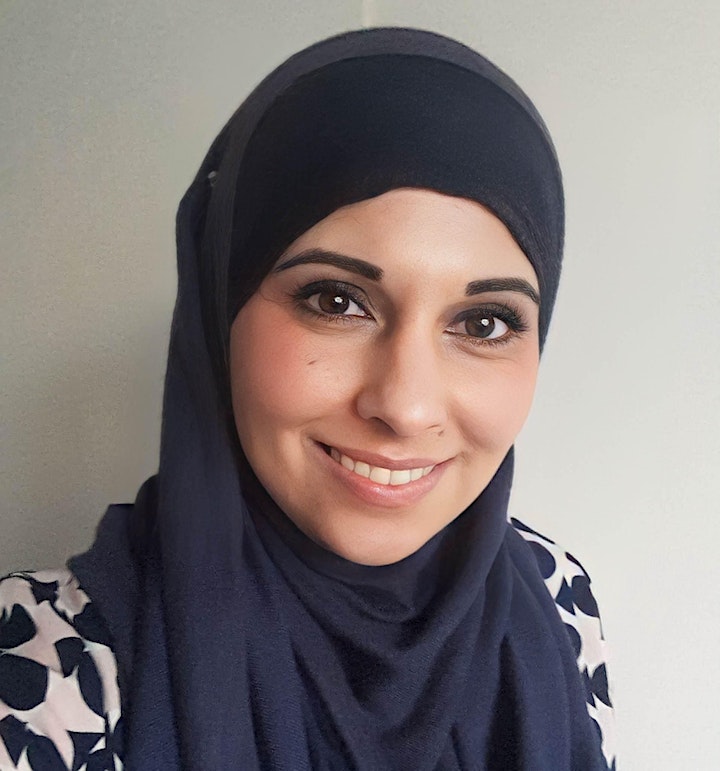
Myira is a multi-award-winning Accredited Counsellor, Supervisor, Coach and Counselling Tutor, and the Founder of the Muslim Counsellor and Psychotherapist Network (MCAPN).
Myira works in private practice, under her organisations ‘Myira Khan Counselling’ and ‘Grow to Glow’ and has over 12 years of clinical experience. Myira also delivers workshops and events internationally and is a regular speaker and facilitator at national conferences. As the Founder of the Muslim Counsellor and Psychotherapist Network (MCAPN), Myira runs the network for Muslim counsellors, therapists and psychologists, offering support, CPD opportunities and raising the visibility of Muslim practitioners. A visibly Muslim ethnically-minoritized practitioner, Myira represents a diversity within the therapeutic and coaching professions, promoting counselling and coaching to ethnically-minoritized, Muslim and under-represented marginalised communities and clients.
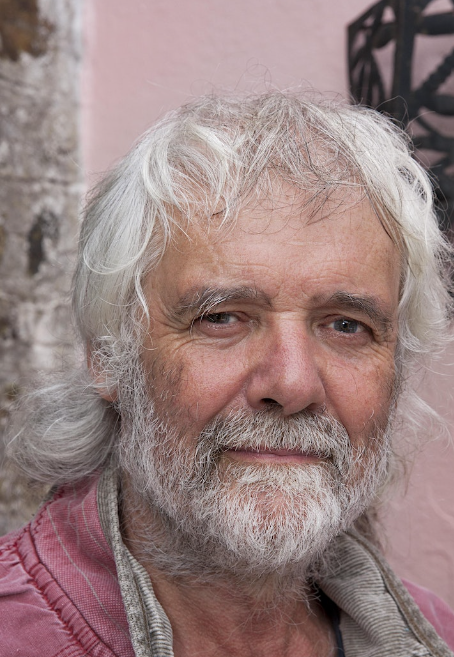
Nick Totton has been a body psychotherapist for forty years, and a supervisor and trainer for nearly as long. He has written a number of books, including Embodied Relating: The Ground of Psychotherapy, Wild Therapy: Rewilding Inner and Outer Worlds, and (forthcoming from PCCS Books) Different Bodies: Deconstructing Normality. He is the founding editor of Psychotherapy and Politics International, and a previous chair of Psychotherapists for Social Responsibility and the Psychotherapists and Counsellors Union. Nick has a daughter and two grandchildren. He lives in Sheffield with his partner and grows vegetables.
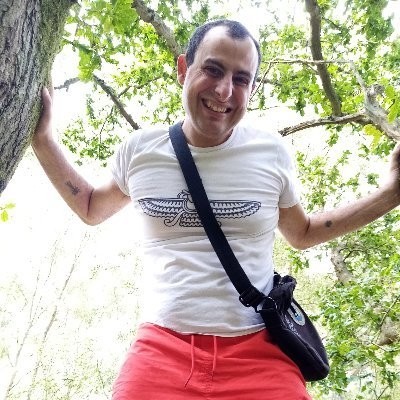
Student in Psychology & Counselling & LEAP Panel Member.
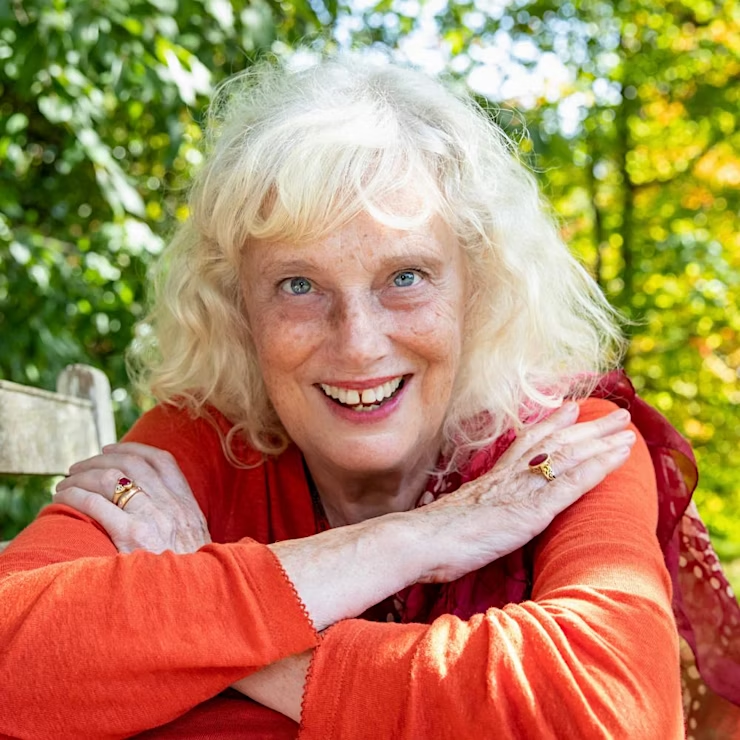
Emmy van Deurzen is a professor of Psychology and Psychotherapy with 18 books to her name, several of which have been translated into a dozen languages. She is the Co-Founder and Principal of the Existential Academy, where she also runs post graduate courses through the New School of Psychotherapy and Counselling in partnership with Middlesex University and her private practice.
Born and raised in the Netherlands, she lived, studied, and worked in France before settling in the UK in 1977. Emmy has been instrumental in founding or cofounding numerous organizations, including the Society for Existential Analysis, the Federation for Existential Therapy in Europe and the World Confederation of Existential Therapy. She has helped people in facing their life problems and suffering for nearly half a century.
Amongst her books are the bestsellers Existential Psychotherapy and Counselling in Practice (3d edition 2012), Psychotherapy and the Quest for Happiness (Sage, 2009), Everyday Mysteries (2nd edition Routledge, 2010) and Paradox and Passion (2nd edition, Wiley, 2015). Her book Rising from Existential Crisis was published with PCCS books in 2021. She is currently writing a book on Existential Freedom for Penguin.
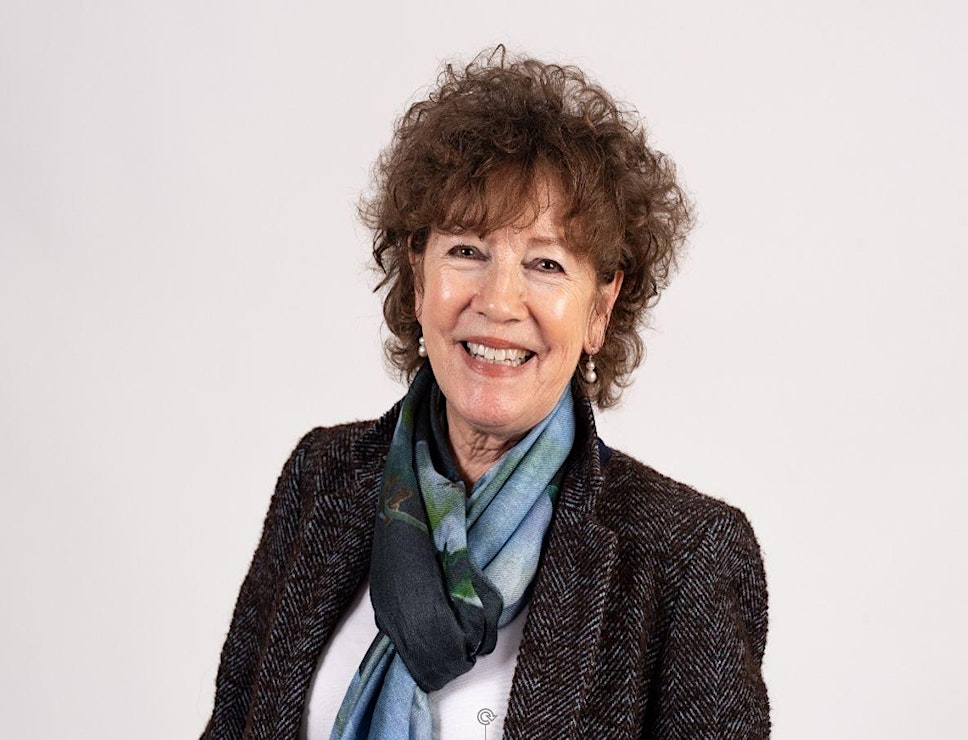
Lynne is Professor of Counselling and Mental Health at York St John University, York, UK. She is a British Association for Counselling and Psychotherapy (BACP) Accredited and Registered Counsellor and Psychotherapist, and an honorary fellow of the association. She is a trained supervisor of practitioners working within the counselling, mental health and helping professions. Originally trained as a mental health nurse, Lynne has been a key player in the counselling and mental health fields for many years, contributing at local, regional, national, and international levels. Lynne has a leadership role in mental health transformation in York, working with the health and mental health system partners to bring about co-designed and coproduced change.
Lynne’s current research areas include public mental health, domestic and relationship abuse and trauma, pluralistic approaches to ethics for the counselling professions, group interventions for bereavement and loss, review and evaluation of standardised mental health measures, and evaluation of the provision of online counselling. Lynne has published books on ethics in practice and research papers on multiple aspects of work in the counselling professions. Lynne is working with coeditor Professor Andrew Reeves on an Ethics in Action series for Routledge and is lead author for the series header book, Navigating Relational Ethics in Day-to-Day Practice (co-author Professor Andrew Reeves; book is in production and due for publication in September 2024).
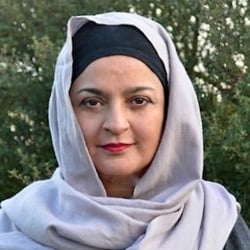
Sabnum Dharamsi is a psychotherapist, and writer. She co-founded the Islamic Counselling Model, developing an accredited training curriculum and practice based on sacred, timeless ways of seeing and being.
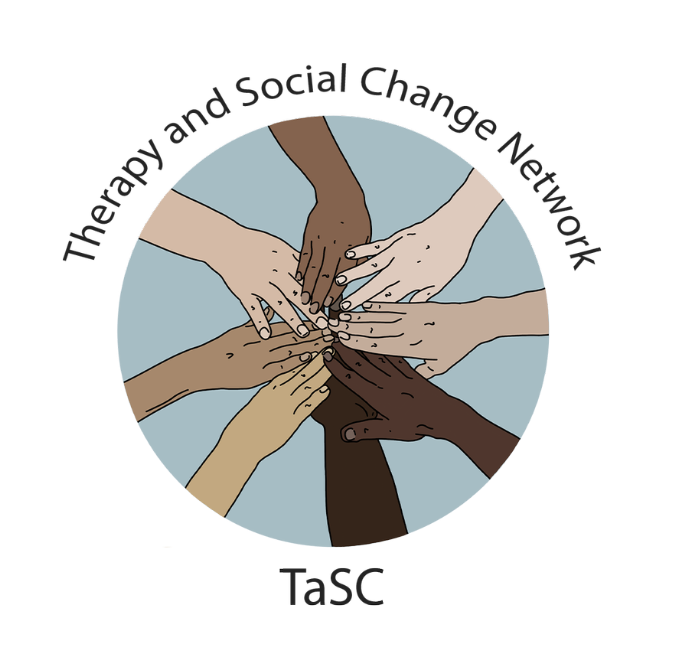
The Therapy and Social Change (TaSC) Network is a broad affiliation of people interested in exploring the interface between therapeutic ideas and practices and social justice perspectives and actions. We are interested both in the ways that counselling and psychotherapy can be practiced with social justice concerns in mind (for instance, tackling unconscious biases in the consulting room), and also in the ways that therapeutic principles and practices can be extended out to the wider social realm (for instance, developing social and emotional literacy in schools).

